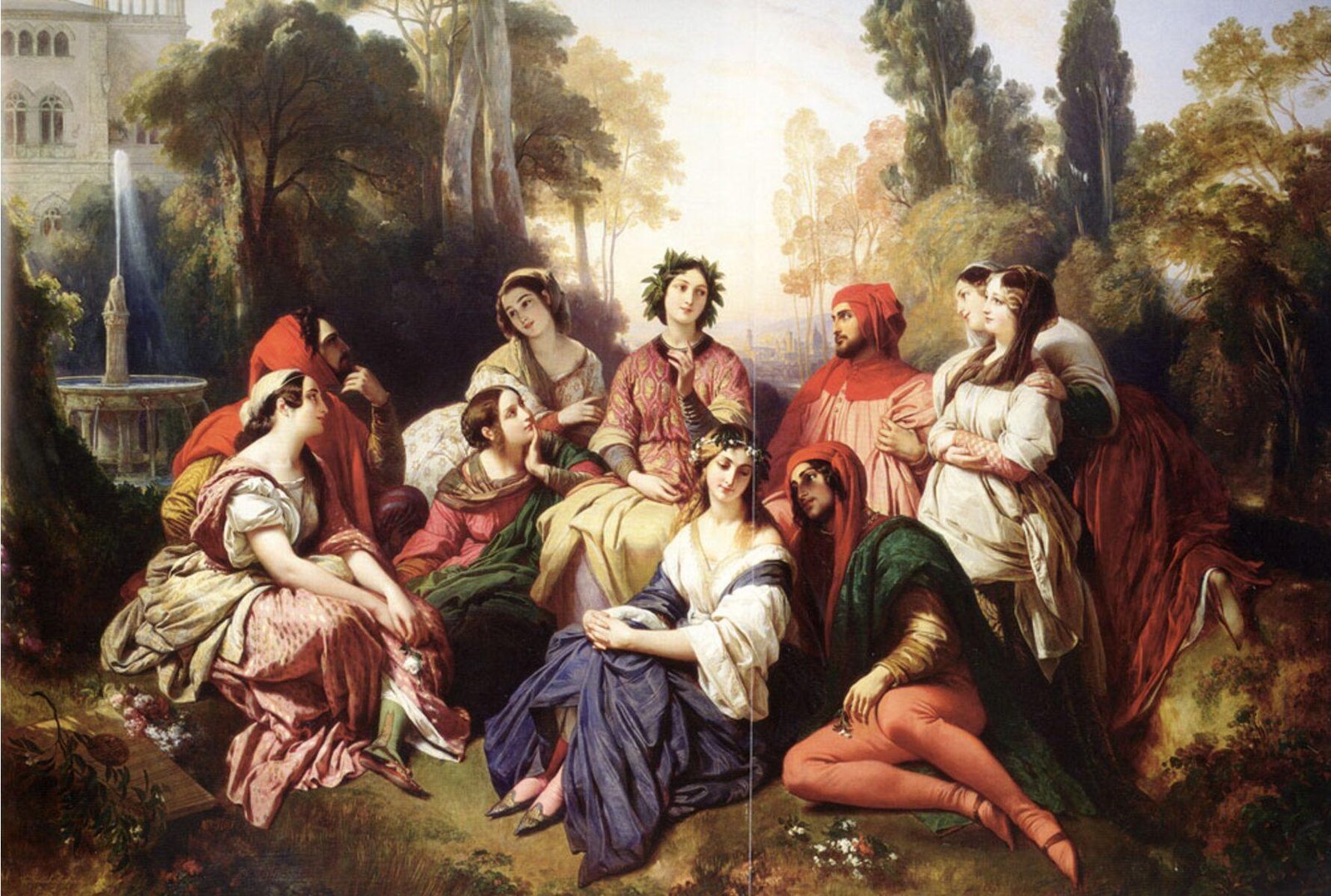"The Tale of Alatiel": Love, Fortune,Identity, and Irony

Introduction
The Decameron, the work of Giovanni Boccaccio, is a vast mosaic of stories dealing thematically with the many aspects of human nature, particularly its deception, love, and luck. The most remarkable features of the story of Alatiel, which is told on the second day, are the subtle irony and the frank comments relating to survival, virtue, and the self. What could pass as a hot tale of passion and disaster is, beneath it all, an expert critique of social manners and the averting of a woman's worth onto her outer appearance.
Summary
The story centres on Alatiel, a stunning Saracen princess who was to marry a king for political reasons. She was on a journey to meet her husband-to-be when her ship was wrecked. Alatiel ended up wandering in the Mediterranean sea for years. During her time in the sea, she met several men, some who were the result of her choice and some who were the result of her circumstances. She lived as a lover, a slave, and a queen at different points of her life. By some miraculous coincidence and a very tightly woven web of deceit, she made her way back to her father, a man who did not know her story, and she was presented once more, along with her pretend ‘virginity’, to her falsely envisioned husband.
Analysis
Boccaccio critiques the dangerous social markings of virginity and female purity encapsulated in the tale of Alatiel’s story. He invites to fathom the absurdity of evaluating a woman’s worth based on her sexual encounters, especially when it is so deceptively easy to hide or repackage them. The very essence of Alatiel’s character allows her to adapt and survive, her past experiences make her no less intelligent, graceful or capable. A woman’s character has, in reality, been judged by the silencing demeanor and unquestionable compliance to daunting perspectives of society.
Additionally, the tale works at multiple layers of meaning and could be understood as both fate as well as luck. Her journey is not dictated by her motives but instead revolves around feeble reasons like kidnappings, shipwrecks, and the mere sexual desires of powerful people. But rather than depicting her as a powerless victim, Boccaccio emphasizes her strength. He demonstrates that with the right intent and shrewdness one can learn to navigate the impositions of different cultures by treaded only with beauty and silence. Alatiel intrepidly managed to extend her life and reclaim some semblance of nobility.
Still, there is irony in how a convenient fiction is maintained at the expense of the truth. The last twist, passing Alatiel off as untouched, demonstrates the extent to which society grooms comforting lies rather than unmasking harsh truths. It does not matter whether she suffers or survives; all that the people want is a ‘perfect bride’ symbol. This is Boccaccio's sharp, yet meticulous comment on social and religious moral hypocrisy.
Lastly, the tale touches upon the themes of self-identification and self-valuation as well. Alatiel changes names and roles multiple times and yet her essence does not change. Those distinct identities capture how performative and flexible social roles are—particularly for women. While Boccaccio may not fully denounce the system, he cleverly critiques it and leaves readers to ponder the consequences.
Personal Response
While reading Alatiel’s story, I felt two conflicting emotions: frustration and fascination. I greatly admired her strength and resilience as I endured her tale, yet was equally infuriated at the societal structures that conditioned her into such an alarming existence. The manner in which she chose to remain silent at the end, albeit justifiable, was deeply unsettling for me—it is a method of survival, but one that sacrifices her reality. I could not stop thinking about how her story remains relevant to this day, particularly with regard to the scrutiny women face concerning the validation or nullification of their experiences.
Conclusion
In conclusion, Alatiel's tale is much more than a chronicle of one lost innocence-it is all about identity, survival, and societal hypocrisy. Boccaccio shows ironies and nuances in the creaky foundations upon which the so-called honor and virtue stand. The journey of Alatiel, though allegedly fostered by ill fortune, stands for resilience and quiet defiance. By telling the tale, Boccaccio entertains the reader and implicitly challenges him to question the values and judgments of his world.







